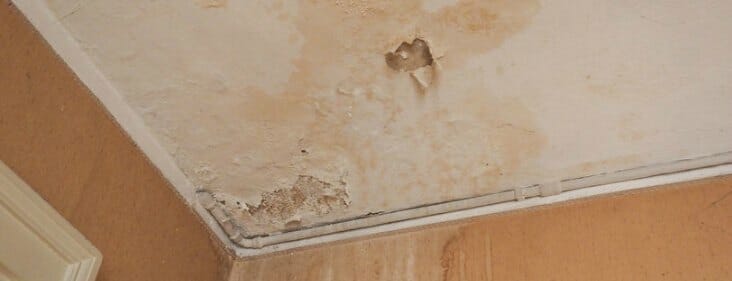The Six Most Common Water Leaks in Your Home: How They Happen and What to Do
The Six Most Common Water Leaks in Your Home: How They Happen and What to Do
Blog Article
Right here down the page you can locate a bunch of incredibly good points around Common Water Leaks In House.

Leakages not only create waste of water however can also create unneeded damages to your home and also promote unwanted natural growth. By understanding and looking for everyday scenarios that trigger leakages, you can secure your residence from future leakages and also unneeded damages.
Encroaching origins
A lot of water leaks begin outside your home as opposed to inside it. If you observe an unexpected reduction in water stress, claim in your tap, take time to head out and also analyze your lawn. You might see wet patches or sinkholes in your backyard, which might imply that tree origins are attacking water lines causing water to leak out. You can have your plumber look for breach, especially if you have trees or hedges near your property.
Corroded water supply
This could be the reason of discoloration or bending on your water pipes. If our plumbing system is old, take into consideration replacing the pipes considering that they are at a higher threat of rust than the newer designs.
Malfunctioning Pipe Joints
The point at which your pipes connect is often the weakest web link in the waterline. Pipeline joints can degrade in time, causing water leakages. The majority of pipeline joints are not quickly visible. If you have loud pipelines that make ticking or banging sounds, especially when the warm water is switched on, your pipe joints are probably under a great deal of pressure. It is advisable to have your plumber inspect your system annually.
Instantaneous temperature level adjustments.
Severe temperature changes in our pipelines can create them to broaden and also acquire unexpectedly. This expansion and also tightening may create cracks in the pipelines, especially if the temperature level are below freezing. It would be best if you kept an eye on just how your plumbing functions. The visibility of the formerly discussed scenarios often indicates a high threat.
Poor Water Connectors
At times, a leakage can be triggered by loose tubes as well as pipelines that supply your appliances. More often than not, changing is what triggers the loosened water Connections. You could find when it comes to a washing maker, a hose pipe might spring a leak as a result of shaking throughout the spin cycle. In case of a water connections leakage, you might observe water running directly from the supply line or puddles around your devices.
Obstructed Drains
Clogged drains could be irritating and inconveniencing, however they can occasionally end up causing an overflow causing break pipes. Keep getting rid of any products that might drop your drains that might obstruct them to avoid such aggravations.
All the above are reasons for leakages however not all water leakages arise from plumbing leakages; some leaks may originate from roof leaks. All leaks ought to be fixed quickly to avoid water damages.
Leakages not only trigger waste of water but can additionally trigger unneeded damage to your home and also advertise unwanted natural growth. By understanding and also looking for daily circumstances that trigger leakages, you can secure your home from future leaks as well as unnecessary damage. Today, we will look at six leak triggers that might be triggering your pipelines to leak.
At times, a leakage can be triggered by loosened hose pipes as well as pipelines that provide your devices. In instance of a water links leakage, you might discover water running straight from the supply line or pools around your home appliances.
How To Check For Water Leak In Your Home
How To Check for Leaks
The average household's leaks can account for nearly 10,000 gallons of water wasted every year and ten percent of homes have leaks that waste 90 gallons or more per day. Common types of leaks found in the home are worn toilet flappers, dripping faucets, and other leaking valves. These types of leaks are often easy to fix, requiring only a few tools and hardware that can pay for themselves in water savings. Fixing easily corrected household water leaks can save homeowners about 10 percent on their water bills.
To check for leaks in your home, you first need to determine whether you're wasting water and then identify the source of the leak. Here are some tips for finding leaks:
Take a look at your water usage during a colder month, such as January or February. If a family of four exceeds 12,000 gallons per month, there are serious leaks.
Check your water meter before and after a two-hour period when no water is being used. If the meter changes at all, you probably have a leak.
Identify toilet leaks by placing a drop of food coloring in the toilet tank. If any color shows up in the bowl after 10 minutes, you have a leak. (Be sure to flush immediately after the experiment to avoid staining the tank.)
Examine faucet gaskets and pipe fittings for any water on the outside of the pipe to check for surface leaks.
Undetected water leaks can happen without the home or business owner even realizing. If you suspect a water leak, but not able to find the source. It is time to contact a professional water leak detection service, The Leak Doctor.
How To Find a Water Leak In Your Home
https://www.leakdoctor.com/blog/How-To-Check-For-Water-Leak-In-Your-Home_AE197.html

As a reader about How Fast Water Damage Can Ruin Your Home, I figured sharing that piece of content was a great idea. Sharing is nice. One never knows, you could be doing someone a favor. I value reading our article about Common Water Leaks In House.
Try Here Report this page